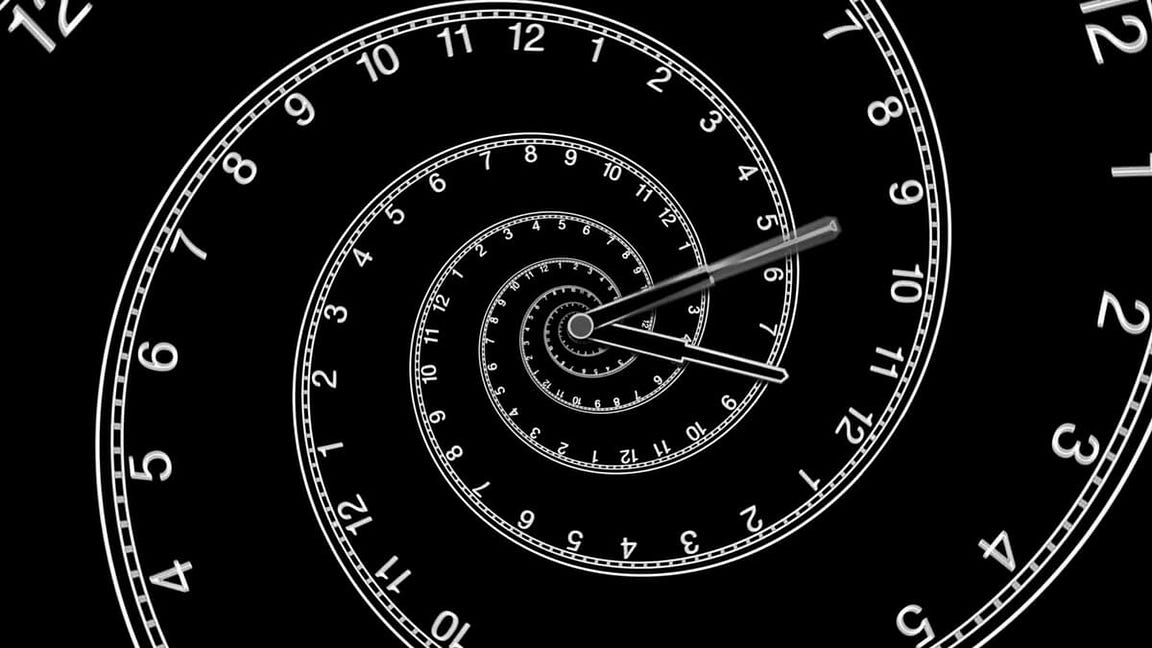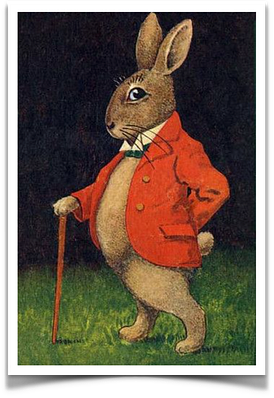Feake Hills, Crooked Waters - The issue with numbers
Open in browser
Math is not what you thinkMath is not what you think it is. I think that holds for everybody, even real mathematicians, whose understanding of it is vastly beyond what the rest of us can muster. Math is not just a different thing to different people; I think it’s even a different thing to to same person person at different times —that is, if there is such a thing as the same person at different times (remind me to return to this in a future issue). It’s been different things for me, at least. I really loved math when I was in elementary school. It was easy for me, not for any reason I can take credit for. The results weren’t always great, of course — in first or second grade I was moved to a “special” math class. I remember thinking I was being punished, because all my friends stayed in our regular classroom while I had to go down the hall to learn what I think they called “conceptual math” or something. It was several years before I found out — or worked out for myself; don’t recall which — that I was in what today would be called a ‘gifted and talented’ class. All I knew was that I didn’t get to stay with my friends during math, and while they were memorizing multiplication tables I was working on…well, something. To this day I have to think about it to multiply anything by seven. After graduate school, math was a path to a job. I had a brand-new master’s degree in organizational communication, a wife, a baby on the way, and a strong need for money. I’d done quite a bit of statistical work to get my degree, and that was what got me a good-paying job doing surveys and other statistics-based research for insurance companies. In retrospect, math probably steered me wrong. Although I kept that job for ten years, I hated nearly every minute of it. Part of hating that job was realizing that while math came pretty easily to me (up to a point at least), it wasn’t my calling. I didn’t love it. Being innately good at math had always brought me recognition and a certain kind of status (in school, for example), and that had tended to steer me toward doing more of it. But I didn’t love it. Maybe I just didn’t learn to love it. Love must be, I think, something you learn, at least sometimes. The romantic idea of love is not that; “love at first sight” is more the expectation, whether you’re talking about people or careers or sports or hobbies. That first sight thing seems to hold, sometimes, for some people. But I wonder how often love is instead something you learn — maybe without even noticing, so when you realize it, it feels like it happens at a glance. What’s been happening in the background, maybe subconsciously, is that you’ve been learning to love the external rewards, or something about the process, or even the people you’re involved with. I think it might be like the “ten thousand hours” idea of becoming an expert at something (that shallow meme that it takes 10K hours for you to become a pro at whatever activity or pursuit you’re pursuing). Let’s call it the “thousand hours to love” process. Find something you’ve got some sort of natural affinity for, involve yourself with it (or them) and you may find that without conscious effort or notice, you come to love it. Out of all the instances of people professing to love their sport or field of work or hobby, I think something like this might be involved in more than half. Maybe far more than half. Selena Gomez sang “the heart wants what it wants,” and decades earlier Woody Allen used that as his justification for marrying Soon Yi. She was, of course, the daughter of Allen’s long-time “partner” (sort of), Mia Farrow. Awkward, and partly because of that Allen is now generally regarded as a creep. He seems to have engaged in plenty of other creepy behavior over the years, too. But the notion that “the heart wants what it wants” is a very old idea that goes back far earlier than even Woody Allen, ancient as that guy is getting to be. If “the heart wants what it wants,” though, where do those wants come from? If you’re born with a particular affinity for math, or for running, or with the hand-eye coordination and sensibility to draw or paint well, is your heart also born with its wants? I think it’s more likely the answer is no. The heart learns what it wants. But the process is hidden from us. Math contains a great deal that’s hidden from us. How much is hidden, and in what way, is as varied and strange as our individual conceptions of math itself. The more you learn, the more of its depths and complexities are revealed to you — and that sequential revelation can be the very thing that teaches your heart. It can be a real rush — sort of an endorphin high — when you suddenly grasp a concept you’ve struggled with. The thing about math is that so many of those moments are possible. Math contains more mysteries than nearly anything, of course, so if that’s the kind of thing your heart is disposed to learn to love, there might be more opportunities than you’ll find anywhere else. It’s not just in your head, then. Math is not what you think. PhotographyI like the juxtaposition in this photo; the closer you come to the foreground the more flawed the spires become. This is a case where depth of field sort of works against you; I wanted the whole series in focus, even though it was a difficult thing for the camera (iPhone) to manage. I also like the slow aging you can see in the patina on the fence. It’s also a good image for the Issue with Numbers, since it looks like a simple series progressing off to a horizon. If it was really a photo of numbers, of course, the series might never end. Word of the day“This is a lipogram - a book, paragraph or similar thing in writing that lacks a symbol, particularly (but not always) that symbol fifth in rank out of our 26 script-signs (found amidst 'd' and 'f'), which stands for a sound such as that in 'kiwi'. I won't bring it up right now, to avoid spoiling it. I could play with lipograms morning, noon and night. So it is with joy that I submit to you this location for lipogram fanatics to join as a unit to glorify this form of wordplay.” As you’ve undoubtedly noticed, the lipogram in the first paragraph (it’s by Stephen Chrisomalis) doesn’t include any “e”s. Technically any piece of text can be a lipogram as long as it omits one specific letter, but because “e” is the most common letter, and thus the biggest challenge, that’s the one that’s nearly always omitted (at least on purpose). Up until this sentence, of course, this very paragraph lacks several letters, including “j” and“x.” The word “lipogram” is an adaptation of an actual Greek word: “lipogrammatos.” The Greek version combines “lip-“, meaning “in want of”, and “grammos” a letter. The original Greek was never, as far as anyone knows, used to mean the sort of word puzzle we mean by “lipogram”, though. The word “lipogram” was introduced to English by Joseph Addison in 1711. Addison was a well-known essayist and the co-founder of the magazine The Spectator, which is where most of his essays were published. He also wrote plays and poems, some of which were very popular. And in his spare time he was the British undersecretary of state and a member of Parliament. You might think that Addison enjoyed word puzzles like constructing lipograms, since he’s the first one to use the word in print, and might even have coined it himself. But it was very much the opposite; he hated the whole idea. He thought any form of fooling around with words or letters was an attempt at humor that just wasn’t legitimate: “…false Wit chiefly consists in the Resemblance and Congruity sometimes of single Letters, as in Anagrams, Chronograms, Lipograms, and Acrosticks; Sometimes of Words, as in Punns…; and sometimes of whole Sentences or Poems, cast into the Figures of Eggs, Axes or Altars …” And by the way, this whole word of the day piece — all five paragraphs — is itself a lipogram; there’s at least one letter missing. It’s an easy one, though. Tales from the Forest“You can’t fool me, Raccoon,” said Dog. “There are not that many numbers.” “Yes there are,” insisted Raccoon. “There are more numbers than one, two, and ‘a lot’, Dog.” “Are not,” said Dog, laying back down in the grass. “I’ll prove it,” said Raccoon. “Look here, Dog, I’ll make some marks in the dirt. Listen as I count them.” Raccoon scratched some lines in the dirt and counted “one, two, three, four, five.” “Now watch,” she said. She scratched some more lines in the dirt, and counted again, “one, two, three, four, five. There, different lines but the same number. And if I add another one, like this…” Raccoon scratched another line “then we have SIX. That’s a number too, Dog, just like ‘one’, ‘two’, and ‘three’.” “I don’t see how this proves anything,” said Dog. “It proves,” said Raccoon, “that these FIVE lines are not as many as these SIX lines.” “They’re just lines,” said Dog. “Who cares how many there are?” Raccoon thought for a moment. “What if they were treats?” she said. “Your family gives you treats, don’t they?” “Yes,” said Dog, smiling as she thought about treats. Her tail thumped on the grass. “There you go,” said Raccoon. “If your family gets you some treats, wouldn’t you like to know how many?” “But I do know how many,” said Dog. “They come in a box. In the box, there are a LOT.” “But...what about when the box gets nearly empty?” said Raccoon. “Then they get me another box,” said Dog happily. Raccoon sighed. “I think I need some help,” she said. She looked around and noticed Worm in the grass. “Worm,” she said, “can you help me explain something to Dog?” “I’ll try,” said Worm. “What are we explaining?” “Numbers!” said Raccoon. “Oh,” said Worm, “I know all about numbers. I can count to 100.” “Really?” said Raccoon, surprised. “That’s, um, good, Worm.” Raccoon was not sure she could count to 100 herself. “Can you show Dog how it works?” “How what works?” asked Worm. “Do you mean counting to 100?” “Yes,” said Raccoon, “but you don’t need to count all the way; won’t that take a long time?” “It never has,” said Worm. “Here, let me show you, Dog. Here are some blades of grass. Here’s 1. The next one is 10. And after that is 11. And then this one is 100.” “What?” said Raccoon. How can that be, Worm?” “I don’t know HOW it can be,” said Worm humbly. “It just is, Raccoon.” “Um,” said Raccoon. “Er,” Raccoon said. “If you say so,” said Raccoon. “Thank you, Worm.” “You’re very welcome,” said Worm, and disappeared into the grass. “That was very interesting, Raccoon,” said Dog. “But I still think I’m right. Worm just has his own names for the same numbers. What you and I call ‘two’, Worm calls ‘10’. When we count ‘three’, Worm says it’s ‘11’. And ‘100’ is a lot. Just like the box of treats.” “Oh dear,” said Raccoon. “Don’t you think 100 is a lot, Raccoon?” asked Dog. “Well, you see…” said Raccoon. “I thought so,” said Dog. “Now I should be getting home, Raccoon. It’s just about time for my treats.” Dog trotted away. Raccoon watched Dog leave and shook her head. 100 times. If you liked this issue of Feake Hills, Crooked Waters, please share it! |
Older messages
It’s All the Rage
Monday, May 30, 2022
But what do you do with it?
You Might Also Like
The Tortoise and The Hare: The Art Market Edition
Tuesday, March 4, 2025
Your weekly 5-minute read with timeless ideas on art and creativity intersecting with business and life͏ ͏ ͏ ͏ ͏ ͏ ͏ ͏ ͏ ͏ ͏ ͏ ͏ ͏ ͏ ͏ ͏ ͏ ͏ ͏ ͏ ͏ ͏ ͏ ͏ ͏ ͏ ͏ ͏ ͏ ͏ ͏ ͏
Unexpectedly at home
Tuesday, March 4, 2025
Billy stomps in the door from the bus stop. ͏ ͏ ͏ ͏ ͏ ͏ ͏ ͏ ͏ ͏ ͏ ͏ ͏ ͏ ͏ ͏ ͏ ͏ ͏ ͏ ͏ ͏ ͏ ͏ ͏ ͏ ͏ ͏ ͏ ͏ ͏ ͏ ͏ ͏ ͏ ͏ ͏ ͏ ͏ ͏ ͏ ͏ ͏ ͏ ͏ ͏ ͏ ͏ ͏ ͏ ͏ ͏ ͏ ͏ ͏ ͏ ͏ ͏ ͏ ͏ ͏ ͏ ͏ ͏ ͏ ͏ ͏ ͏ ͏ ͏ ͏ ͏ ͏ ͏ ͏ ͏ ͏ ͏ ͏
A Whopper of a Way to Pay For Your Wedding
Tuesday, March 4, 2025
Maybe it'll happen again if Jim Olive and Jane Garden get married?
Community Tickets: Advanced Scrum Master (PSM II) Class of March 26-27, 2025
Tuesday, March 4, 2025
Save 50 % on the Regular Price ͏ ͏ ͏ ͏ ͏ ͏ ͏ ͏ ͏ ͏ ͏ ͏ ͏ ͏ ͏ ͏ ͏ ͏ ͏ ͏ ͏ ͏ ͏ ͏ ͏ ͏ ͏ ͏ ͏ ͏ ͏ ͏ ͏ ͏ ͏ ͏ ͏ ͏ ͏ ͏ ͏ ͏ ͏ ͏ ͏ ͏ ͏ ͏ ͏ ͏ ͏ ͏ ͏ ͏ ͏ ͏ ͏ ͏ ͏ ͏ ͏ ͏ ͏ ͏ ͏ ͏ ͏ ͏ ͏ ͏ ͏ ͏ ͏ ͏ ͏ ͏ ͏ ͏ ͏ ͏ ͏ ͏ ͏ ͏ ͏
eBook & Paperback • Demystifying Hospice: The Secrets to Navigating End-of-Life Care by Barbara Petersen
Monday, March 3, 2025
Author Spots • Kindle • Paperback Welcome to ContentMo's Book of the Day "Barbara
How Homer Simpson's Comical Gluttony Saved Lives
Monday, March 3, 2025
But not Ozzie Smith's. He's still lost, right?
🧙♂️ Why I Ditched Facebook and Thinkific for Circle (Business Deep Dive)
Monday, March 3, 2025
Plus Chad's $50k WIN ͏ ͏ ͏ ͏ ͏ ͏ ͏ ͏ ͏ ͏ ͏ ͏ ͏ ͏ ͏ ͏ ͏ ͏ ͏ ͏ ͏ ͏ ͏ ͏ ͏ ͏ ͏ ͏ ͏ ͏ ͏ ͏ ͏ ͏ ͏ ͏ ͏ ͏ ͏ ͏ ͏ ͏ ͏ ͏ ͏ ͏ ͏ ͏ ͏ ͏ ͏ ͏ ͏ ͏ ͏ ͏ ͏ ͏ ͏ ͏ ͏ ͏ ͏ ͏ ͏ ͏ ͏ ͏ ͏ ͏ ͏ ͏ ͏ ͏ ͏ ͏ ͏ ͏ ͏ ͏ ͏ ͏ ͏ ͏ ͏ ͏ ͏ ͏
I'd like to buy Stripe shares
Monday, March 3, 2025
Hi all, I'm interested in buying Stripe shares. If you know anyone who's interested in selling I'd love an intro. I'm open to buying direct shares or via an SPV (0/0 structure, no
What GenAI is doing to the Content Quality Bell Curve
Monday, March 3, 2025
Generative AI makes it easy to create mediocre content at scale. That means, most of the web will become mediocre content, and you need to work harder to stand out. ͏ ͏ ͏ ͏ ͏ ͏ ͏ ͏ ͏ ͏ ͏ ͏ ͏ ͏ ͏ ͏ ͏ ͏
mRNA breakthrough for cancer treatment, AI of the week, Commitment
Monday, March 3, 2025
A revolutionary mRNA breakthrough could redefine medicine by making treatments more effective, durable, and precise; AI sees major leaps with emotional speech, video generation, and smarter models; and




